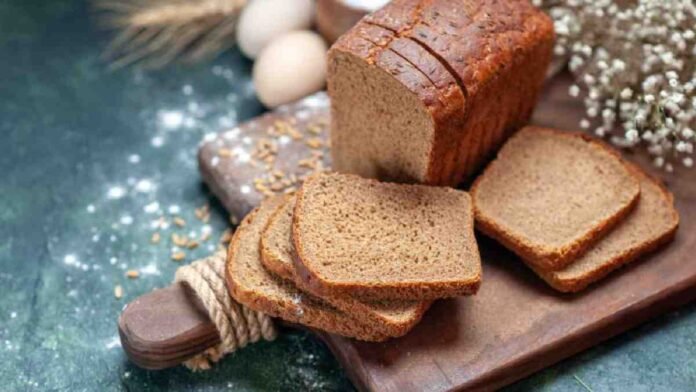Although brown bread is frequently touted as being healthier than white bread, is it actually more beneficial for you? Granted that brown bread has some nutritional benefits, it’s critical to distinguish reality from myth. This post will dispel widespread misconceptions about brown bread and clarify its actual health advantages.
Myth 1: Brown Bread is Always Whole Grain
Reality: Whole grains aren’t used to make all brown bread. Even though they are produced with refined flour, certain brown breads are coloured with caramel. However, whole-grain bread is created with flour that contains the endosperm, germ, and bran of the grain. Look for phrases like “whole grain” or “100% whole wheat” in the ingredients list to be sure you’re purchasing a genuine whole grain product.
Myth 2: Brown Bread is Lower in Calories
Reality: The calorie content of brown bread is not always less than that of white bread. The components and portion size determine how many calories there are. Although brown bread frequently has more minerals and fiber than white bread, which can help you feel fuller, its calorie count might be comparable to that of white bread. Always compare the calorie content by reading nutrition labels.
Myth 3: Brown Bread is Better for Weight Loss
Reality: Because brown bread has more fiber than white bread, which helps with digestion and keeps you feeling filled longer, it may be good for managing weight. But making the move to brown bread alone—without taking into account dietary and lifestyle modifications as a whole—might not result in appreciable weight loss. Regular physical exercise along with a balanced diet are essential for successful weight management.
Myth 4: Brown Bread Prevents Diabetes
Reality: Although brown bread, especially whole grain kinds, has a lower glycemic index than white bread, diabetes cannot be completely cured by eating brown bread. Because of its lower glycemic index, it has less of an effect on blood sugar levels. But controlling diabetes requires a multifaceted strategy that includes eating a balanced diet, keeping a healthy weight, and keeping an eye on carbohydrate intake.
Myth 5: Brown Bread Contains More Nutrients
Reality: Generally speaking, whole grain brown bread has more nutrition than white bread, which is manufactured from refined flour that has had many of its contents removed. These nutrients include fiber, vitamins, and minerals. But not every brown bread is made equally. Some might have extra nutrients added to them to replace those lost during manufacturing. To learn more about what you’re ingesting, always read the nutrition label.
Myth 6: Brown Bread is Always Healthier for Digestive Health
Reality: The higher fiber level of brown bread helps avoid constipation and encourage regular bowel movements, both of which are beneficial to digestive health. However eating high-fiber bread might cause discomfort in some people’s digestive systems, particularly if they’re not used to it. Water consumption and a gradual increase in fiber consumption can facilitate this shift.
Myth 8: Brown Bread is Suitable for Everyone
Reality: Preservatives, added sugars, and additives are still permitted in brown bread. Commercial brown loaves often have high sugar content or artificial additives added for flavour. Look for bread with few ingredients and without artificial additives or extra sugars to make sure you’re making a healthier choice.
Conclusion
When it comes to choosing between white and brown bread, brown bread can be healthier, especially if it is composed of whole grains and doesn’t contain any additional additives. It has a lower glycemic index, higher fiber, and other nutrients that can help with weight management and general health. But, it’s crucial to remember that brown bread is only one component of a balanced diet and to be selective about the varieties you select. You will be able to make better decisions regarding your bread and general nutrition by dispelling these widespread misconceptions.



